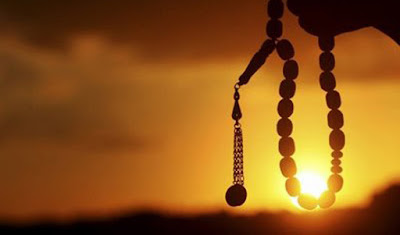Tahajjud (تهجد) : Prayer at night
10th July 2019, 7th Zulkaedah 1440H
Surat Al-'Isrā' (The Night Journey), Chapter 17, Verse 79:
"And from [part of] the night, pray with it as additional [worship] for you; it is expected that your Lord will resurrect you to a praised station." (Quran 17:79)
Surat Al-Furqān (The Criterian), Chapter 25, Verse 64:
"And those who spend [part of] the night to their Lord prostrating and standing [in prayer]" (Quran 25:64)Tahajjud (تهجد): Prayer at night
اللَّهُمَّ لَكَ الْحَمْدُ أَنْتَ قَيِّمُ السَّمَوَاتِ وَالأَرْضِ وَمَنْ فِيهِنَّ وَلَكَ الْحَمْدُ، لَكَ مُلْكُ السَّمَوَاتِ وَالأَرْضِ وَمَنْ فِيهِنَّ، وَلَكَ الْحَمْدُ أَنْتَ نُورُ السَّمَوَاتِ وَالأَرْضِ، وَلَكَ الْحَمْدُ أَنْتَ الْحَقُّ، وَوَعْدُكَ الْحَقُّ، وَلِقَاؤُكَ حَقٌّ، وَقَوْلُكَ حَقٌّ، وَالْجَنَّةُ حَقٌّ، وَالنَّارُ حَقٌّ، وَالنَّبِيُّونَ حَقٌّ، وَمُحَمَّدٌ صلى الله عليه وسلم حَقٌّ، وَالسَّاعَةُ حَقٌّ، اللَّهُمَّ لَكَ أَسْلَمْتُ، وَبِكَ آمَنْتُ وَعَلَيْكَ تَوَكَّلْتُ، وَإِلَيْكَ أَنَبْتُ، وَبِكَ خَاصَمْتُ، وَإِلَيْكَ حَاكَمْتُ، فَاغْفِرْ لِي مَا قَدَّمْتُ وَمَا أَخَّرْتُ، وَمَا أَسْرَرْتُ وَمَا أَعْلَنْتُ، أَنْتَ الْمُقَدِّمُ وَأَنْتَ الْمُؤَخِّرُ، لاَ إِلَهَ إِلاَّ أَنْتَ ـ أَوْ لاَ إِلَهَ غَيْرُكَ
When the Prophet (ﷺ) got up at night to offer the Tahajjud prayer, he used to say:
Allahumma lakal-hamd. Anta qaiyyimus-samawati wal-ard wa man fihinna. Walakal-hamd, Laka mulkus-samawati wal-ard wa man fihinna. Walakal-hamd, anta nurus-samawati wal-ard. Wa lakal-hamd, anta-l-haq wa wa'duka-lhaq, wa liqa'uka Haq, wa qauluka Haq, wal-jannatu Han wan-naru Haq wannabiyuna Haq. Wa Muhammadun, sallal-lahu'alaihi wasallam, Haq, was-sa'atu Haq. Allahumma aslamtu Laka wabika amantu, wa 'Alaika tawakkaltu, wa ilaika anabtu wa bika khasamtu, wa ilaika hakamtu faghfir li ma qaddamtu wama akh-khartu wama as-rartu wama'a lantu, anta-l-muqaddim wa anta-l-mu akh-khir, la ilaha illa anta (or la ilaha ghairuka).
"(O Allah! All the praises are for you, You are the Holder of the Heavens and the Earth, And whatever is in them. All the praises are for You; You have the possession of the Heavens and the Earth And whatever is in them. All the praises are for You; You are the Light of the Heavens and the Earth And all the praises are for You; You are the King of the Heavens and the Earth; And all the praises are for You; You are the Truth and Your Promise is the truth, And to meet You is true, Your Word is the truth And Paradise is true And Hell is true And all the Prophets (Peace be upon them) are true; And Muhammad is true, And the Day of Resurrection is true. O Allah ! I surrender (my will) to You; I believe in You and depend on You. And repent to You, And with Your help I argue (with my opponents, the non-believers) And I take You as a judge (to judge between us). Please forgive me my previous And future sins; And whatever I concealed or revealed And You are the One who make (some people) forward And (some) backward. There is none to be worshipped but you."
Sufyan said that `Abdul Karim Abu Umaiya added to the above, 'Wala haula Wala quwata illa billah' (There is neither might nor power except with Allah). (Sahih Bukhari: 1120)
اللَّهُمَّ إِنِّي أَسْتَخِيرُكَ بِعِلْمِكَ وَأَسْتَقْدِرُكَ بِقُدْرَتِكَ، وَأَسْأَلُكَ مِنْ فَضْلِكَ الْعَظِيمِ، فَإِنَّكَ تَقْدِرُ وَلاَ أَقْدِرُ وَتَعْلَمُ وَلاَ أَعْلَمُ وَأَنْتَ عَلاَّمُ الْغُيُوبِ، اللَّهُمَّ إِنْ كُنْتَ تَعْلَمُ أَنَّ هَذَا الأَمْرَ خَيْرٌ لِي فِي دِينِي وَمَعَاشِي وَعَاقِبَةِ أَمْرِي ـ أَوْ قَالَ عَاجِلِ أَمْرِي وَآجِلِهِ ـ فَاقْدُرْهُ لِي وَيَسِّرْهُ لِي ثُمَّ بَارِكْ لِي فِيهِ، وَإِنْ كُنْتَ تَعْلَمُ أَنَّ هَذَا الأَمْرَ شَرٌّ لِي فِي دِينِي وَمَعَاشِي وَعَاقِبَةِ أَمْرِي ـ أَوْ قَالَ فِي عَاجِلِ أَمْرِي وَآجِلِهِ ـ فَاصْرِفْهُ عَنِّي وَاصْرِفْنِي عَنْهُ، وَاقْدُرْ لِي الْخَيْرَ حَيْثُ كَانَ ثُمَّ أَرْضِنِي بِهِ
Narrated Jabir bin `Abdullah:
The Prophet (p.b.u.h) used to teach us the way of doing Istikhara (Istikhara means to ask Allah to guide one to the right sort of action concerning any job or a deed), in all matters as he taught us the Suras of the Qur'an. He said, "If anyone of you thinks of doing any job he should offer a two rak`at prayer other than the compulsory ones and say (after the prayer): --
'Allahumma inni astakhiruka bi'ilmika, Wa astaqdiruka bi-qudratika, Wa as'alaka min fadlika Al-`azlm Fa-innaka taqdiru Wala aqdiru, Wa ta'lamu Wala a'lamu, Wa anta 'allamu l-ghuyub. Allahumma, in kunta ta'lam anna hadha-lamra Khairun li fi dini wa ma'ashi wa'aqibati `Amri (or 'ajili `Amri wa'ajilihi) Faqdirhu wa yas-sirhu li thumma barik li Fihi, Wa in kunta ta'lamu anna hadha-lamra shar-run li fi dini wa ma'ashi wa'aqibati `Amri (or fi'ajili `Amri wa ajilihi) Fasrifhu anni was-rifni anhu. Waqdir li al-khaira haithu kana Thumma ardini bihi.'
(O Allah! I ask guidance from Your knowledge, And Power from Your Might and I ask for Your great blessings. You are capable and I am not. You know and I do not and You know the unseen. O Allah! If You know that this job is good for my religion and my subsistence and in my Hereafter--(or said: If it is better for my present and later needs)--Then You ordain it for me and make it easy for me to get, And then bless me in it, and if You know that this job is harmful to me In my religion and subsistence and in the Hereafter--(or said: If it is worse for my present and later needs)--Then keep it away from me and let me be away from it. And ordain for me whatever is good for me, And make me satisfied with it).
The Prophet (ﷺ) added that then the person should name (mention) his need. (Sahih Bukhari: 1166)
Sleeping in the first part of the night and getting up in its last part
Narrated Al-Aswad:
I asked `Aisha "How is the night prayer of the Prophet?" She replied, "He used to sleep early at night, and get up in its last part to pray, and then return to his bed. When the Mu'adh-dhin pronounced the Adhan, he would get up. If he was in need of a bath he would take it; otherwise he would perform ablution and then go out (for the prayer)." (Sahih Bukhari: 1146)
References:
- Tahajjud (تهجد), https://sunnah.com/search/?q=%D8%AA%D9%87%D8%AC%D8%AF, viewed 31st October 2019.
- Sahih al-Bukhari: Book of Prayer at Night (Tahajjud), https://sunnah.com/bukhari/19, viewed 10th July 2019.


Comments
Post a Comment